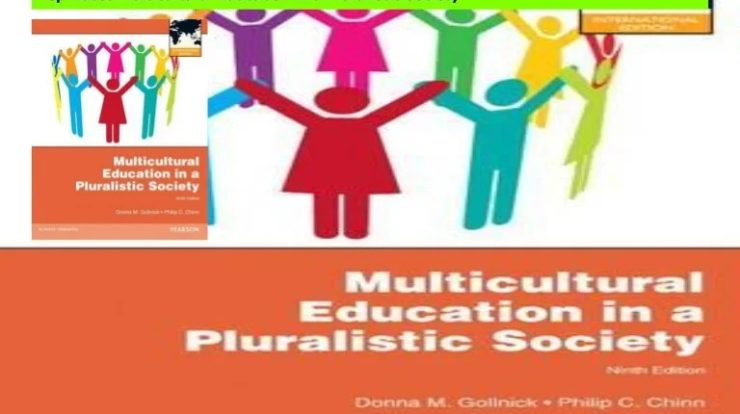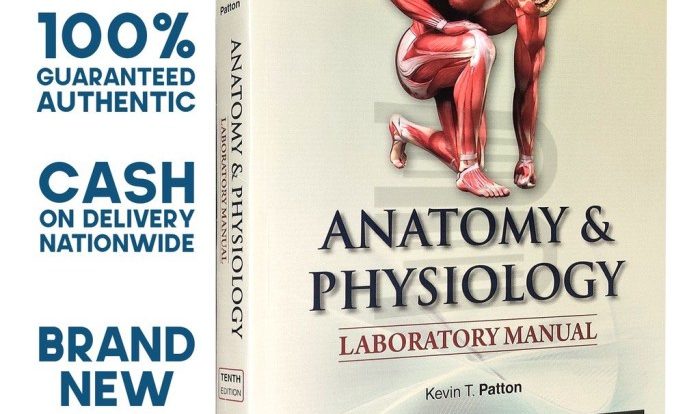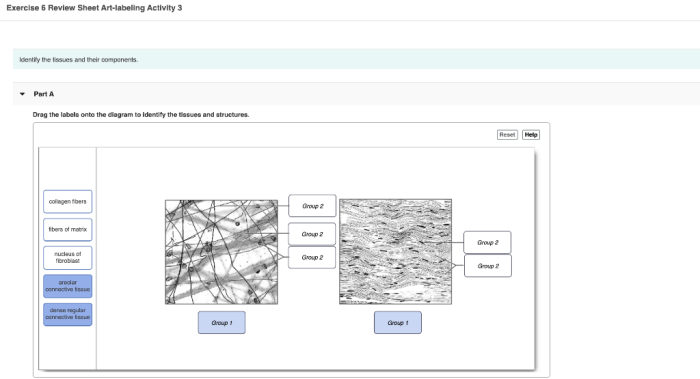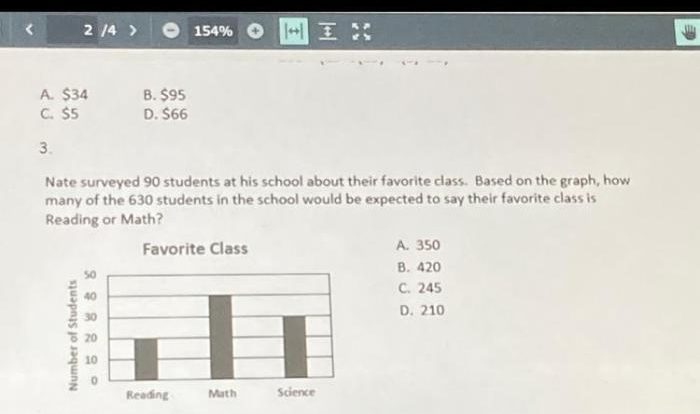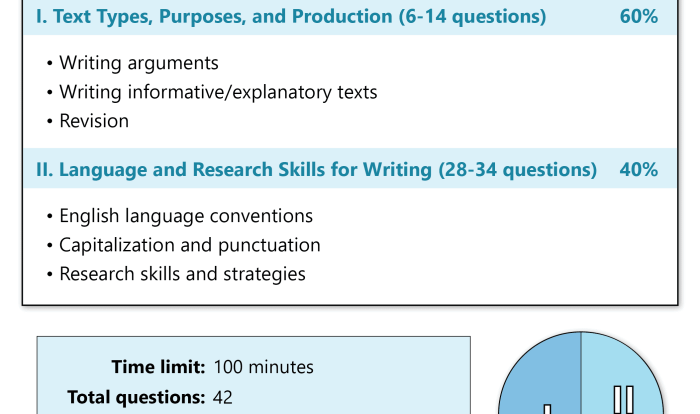Embark on a journey through AP Classroom Unit 5 Progress Check MCQ, an essential assessment designed to gauge students’ understanding of key historical concepts and critical thinking skills. This comprehensive guide delves into the intricacies of the MCQ, providing an in-depth analysis of its format, content, and strategies for success.
As we navigate through this guide, we will explore the purpose and significance of the AP Classroom Unit 5 Progress Check MCQ, dissect its content and structure, and uncover the critical thinking skills it assesses. Additionally, we will provide effective study strategies and tips for utilizing the MCQ as a valuable formative assessment tool.
Unit 5 Progress Check MCQ Overview
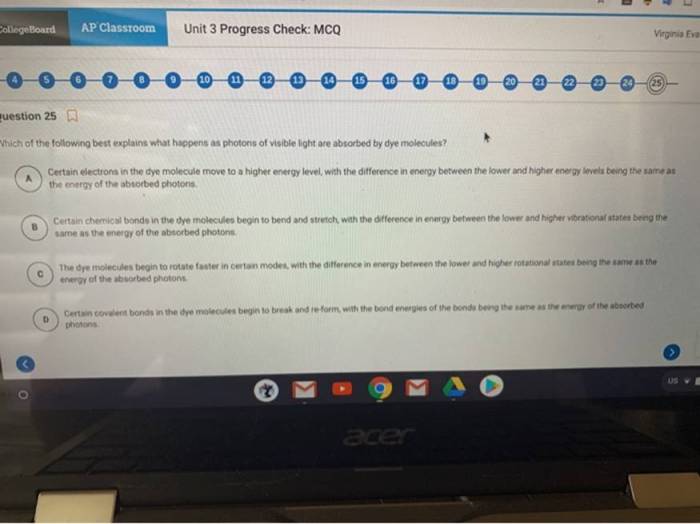
The AP Classroom Unit 5 Progress Check MCQ is a crucial assessment designed to evaluate students’ understanding of the content covered in Unit 5 of the AP World History curriculum. It provides insights into students’ progress and readiness for the AP World History exam.
Format, Structure, and Duration
The MCQ consists of 55 multiple-choice questions that must be completed within 60 minutes. The questions are divided into four sections:
- Section 1: Historical Thinking Skills (15 questions)
- Section 2: The Global Tapestry (15 questions)
- Section 3: Exchange and Encounter (15 questions)
- Section 4: Periodization (10 questions)
Topics and Concepts Covered
The MCQ covers a wide range of topics and concepts from Unit 5, including:
- The rise and fall of empires
- Global trade and cultural exchange
- The development of new technologies and ideas
- The impact of environmental change on human societies
Content Analysis of the MCQ

Key Themes and Concepts
The MCQ assesses students’ understanding of the following key themes and concepts:
- The interconnectedness of world history
- The role of individuals and groups in shaping historical events
- The impact of technology and innovation on human societies
- The importance of historical context and perspective
Historical Events, Figures, and Ideas
The MCQ focuses on specific historical events, figures, and ideas, including:
- The Mongol conquests
- The Renaissance and Reformation
- The Scientific Revolution
- The Enlightenment
Distribution of Questions
The MCQ questions are distributed across different historical periods and topics as follows:
| Historical Period | Number of Questions |
|---|---|
| Prehistory and Ancient Civilizations | 5 |
| Classical Civilizations | 10 |
| Medieval Civilizations | 15 |
| Early Modern Civilizations | 15 |
| Modern Civilizations | 10 |
Skills Assessed in the MCQ
Critical Thinking Skills
The MCQ requires students to demonstrate critical thinking skills, such as:
- Analyzing historical sources and evidence
- Evaluating different perspectives and interpretations
- Drawing inferences and making connections
- Applying historical knowledge to new situations
Understanding of Historical Sources and Evidence, Ap classroom unit 5 progress check mcq
The MCQ assesses students’ ability to:
- Identify the strengths and weaknesses of different types of historical sources
- Interpret primary and secondary sources
- Evaluate the reliability and credibility of historical evidence
Role of Historical Context and Interpretation
The MCQ requires students to:
- Understand the historical context in which events occurred
- Consider different interpretations of historical events
- Formulate their own informed opinions based on evidence and analysis
Strategies for Preparing for the MCQ
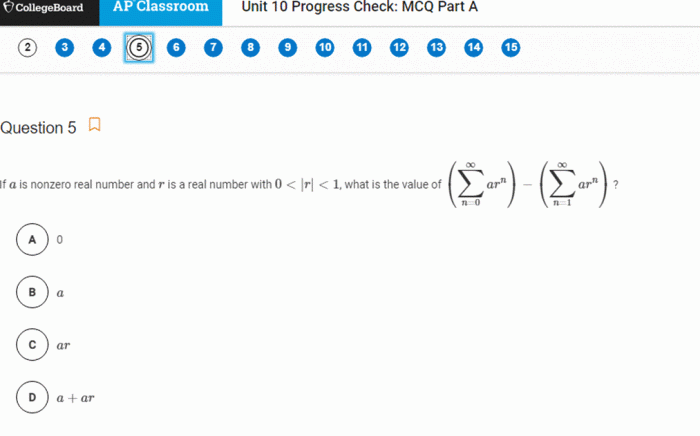
Effective Study Strategies
To prepare effectively for the Unit 5 Progress Check MCQ, students should:
- Review course materials thoroughly
- Practice answering MCQ questions using practice tests or online resources
- Familiarize themselves with the format and structure of the assessment
- Manage their time wisely during the assessment
Tips for Time Management and Stress Reduction
During the assessment, students should:
- Read the instructions carefully
- Allocate time wisely for each section
- Skip difficult questions and return to them later
- Take deep breaths and stay calm
Utilizing the MCQ for Multiple Purposes

Informing Instruction
Teachers can use the results of the MCQ to:
- Identify areas where students need additional support
- Adjust their teaching strategies accordingly
- Provide targeted feedback to students
Formative Assessment
The MCQ can be used as a formative assessment tool to:
- Monitor student progress throughout the unit
- Provide students with opportunities to self-assess their understanding
- Identify areas where students need to improve their skills
Questions and Answers: Ap Classroom Unit 5 Progress Check Mcq
What is the purpose of the AP Classroom Unit 5 Progress Check MCQ?
The AP Classroom Unit 5 Progress Check MCQ is designed to assess students’ understanding of the key concepts and historical events covered in Unit 5 of the AP History curriculum.
What are the key themes and concepts tested in the MCQ?
The MCQ covers a range of themes and concepts related to Unit 5, including political, economic, social, and cultural developments, as well as the role of individuals and ideas in shaping historical events.
How can I prepare for the AP Classroom Unit 5 Progress Check MCQ?
Effective preparation involves reviewing course materials, practicing answering MCQ questions, and developing strategies for time management and stress reduction during the assessment.
